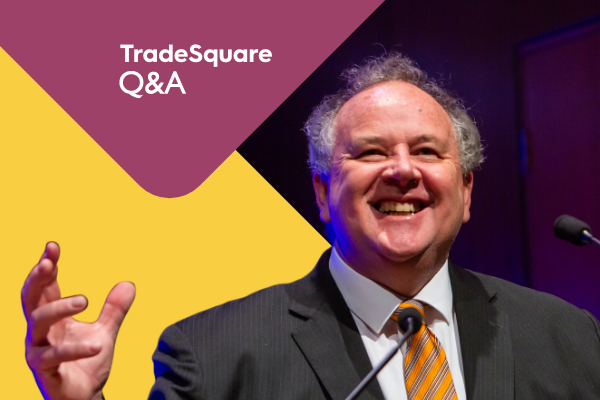After returning to Australia from the US, Victor recognised a change in language of Aussies to be more pessimistic and often negative and launched the Australian Leadership Project and the Centre for Optimism to listen, learn and activate change.
TS: Tell me more about the Centre for Optimism.
VP: A fundamental practice is to ask people the question, what makes you optimistic? We believe optimism is a state of mind, not a state of the world.
We work with a definition of optimism that goes back some 700 or 800 years to Mother Julian of Norwich, (who wrote the oldest surviving book in English written by a woman, Revelations of Divine Love, a medieval book of Christian mystical devotions).
She famously said, “All shall be well, all shall be well, all manner of things shall be well.” The American military, Oxford and others all define optimism, as a belief that good things will happen, that things will work out in the end, and to which some people add “and if it hasn't worked out, it's not the end”.
So we’ve asked presidents and prime ministers, people in prison workshops, in schools, universities, at conferences, in major corporations, what makes you optimistic? We also foster what we call ‘realistic and infectiously optimistic leadership’. You can read 70 or 80 leadership books and you know, there's probably 150 qualities of a good leader.
But what we need in 2021 - emerging from a pandemic into a better normal - are leaders who are realistic, and infectiously optimistic. That doesn't mean the woman or man making a big speech from the podium on how good they are or how good the company is. It's the person who can unlock the optimism in the team.
TS: So what's one thing that makes you optimistic?
VP: What makes me optimistic is asking people every day what makes them optimistic.
It really goes back to that first question you asked me: who are you? For me, there's a bit of innate optimism; I think there's some genetics in it. When I look at the background of my family and the tough times they went through, they came through and were infectiously optimistic and lifted other people. I've been fortunate to see genuine suffering and genuine hardship and see people come through that.
Then secondly, it's the research I do into optimism. I understand that optimism is good for your health. There are findings that optimism is the major trait that contributes to longevity, heart health, cancer recovery, even Alzheimer's, and it's the underpinning of good work. So I think it's a mixture of nature and nurture.
TS: What are some of those key topics of discussion that are really getting consistent air time at the office of the Centre for Optimism?
VP: For us, having spent the first year building credibility and building the level of activity, now it's about what takes us to the next level. So number one, we have got a lot of people who want to volunteer. For me, number one is really helping the volunteers who want to help us.
Number two is working out how people want to be communicated with. I think email now overwhelms people; people just get too many. So, I send a once-a-day WhatsApp dose of optimism that a lot of people tell me they really like. We use LinkedIn, we use Twitter. So in a world where people are overwhelmed with messaging, and sales messaging, I come back to a book that was written by one of my board members, John Hagle, 10 years ago called “The Power of Pull” - How do we draw people toward us?
Then the third thing is how do we help people to strengthen themselves. Obviously, we encourage people to ask other people, “what makes you optimistic?”.
So for us, I'd say it's those things, how do we make better use of the people who want to help us and in doing that empower them?. Secondly, how do we communicate in a way that doesn't overwhelm people, because we're producing so much new material. And then thirdly, that question of how do we draw people towards us rather than drive them nuts by sending out messages? I think that's a challenge to every business: how do you get attention with something worthwhile?
Interested in learning more? Listen to our entire conversation with Victor Perton at the TradeSquare podcast, TSQ here.


Leave Comment